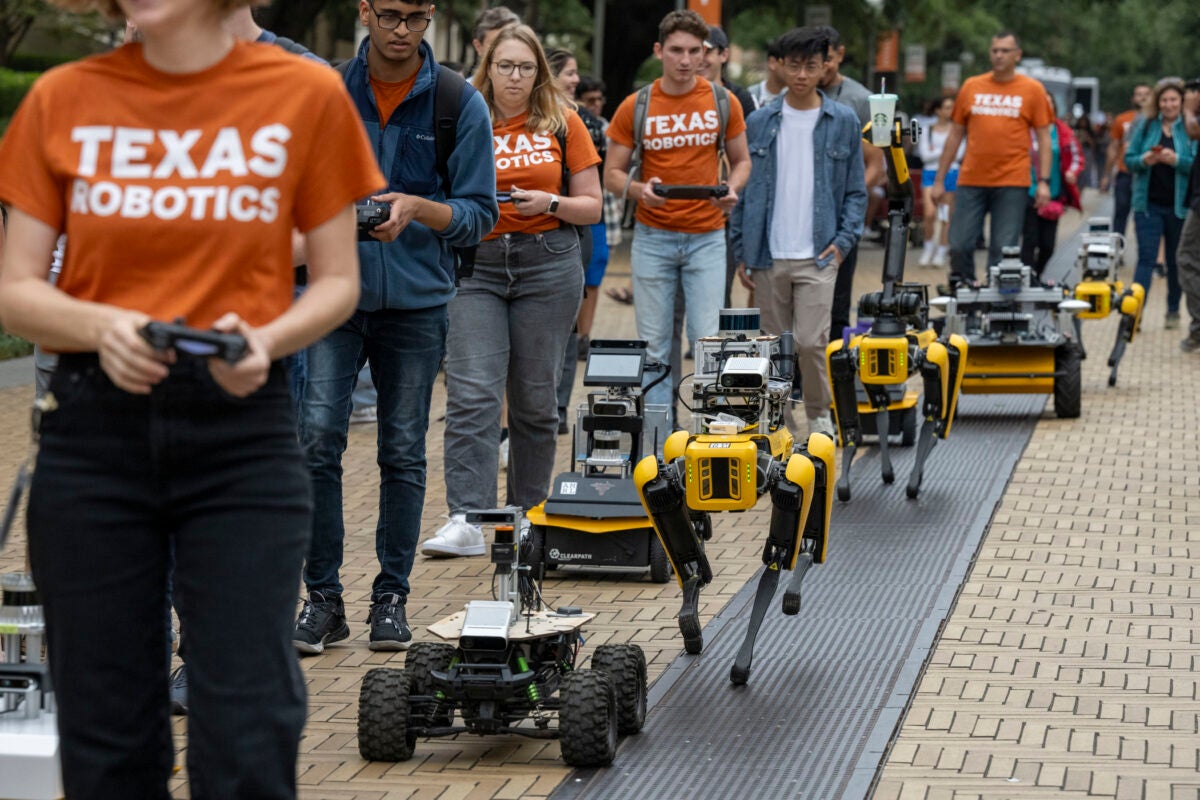One Year After Chat GPT-4, Researcher Reflects on What to Know about Generative AI
Insights from Risto Miikkulainen, a UT Austin professor of computer science and VP of AI Research at Cognizant Advanced AI Labs.

Last month, University of Texas at Austin professor of computer science Risto Miikkulainen published in AI Magazine about the paradigm-shifting opportunity that generative AI presents for machine learning researchers, and he sat down for a video, featured by the Association for the Advancement of Artificial Intelligence, to discuss the paper with Babak Hodjat, a fellow technology leader at Cognizant Advanced AI Labs.
The paradigm shift isn’t only for researchers, Miikkulainen argues. In the commentary below, he notes that the future of work also will change, and that everyone needs to adjust to a tool that, like a human expert, has much to offer.

Risto Miikkulainen
Just as we refer to the world of five years ago as pre-pandemic, we might soon refer to the world of one year ago as pre-AI. When Open AI introduced its advanced artificial intelligence system, Chat GPT-4 in March of 2023, the technology’s human-like qualities and advanced capabilities led to excitement – and then alarm.
Soon, we were seeing headlines about how hundreds of millions of jobs, as well as everyday practices in schools and universities, would have to change. The impact for nearly every sector felt on a par with the Industrial Revolution or the arrival of the Information Age.
Concerns that AI will take away people’s jobs, or at least change them profoundly, remain a year later. A recent study by Oxford Economics/Cognizant suggested that 90% of jobs in the U.S. will be affected by AI by 2032. Affected is not the same as eliminated (only about 1% of people are expected to struggle finding jobs during this transition). Nonetheless, nearly every individual stands to see their life at work significantly changed by this technology very soon.
The new AI, called generative AI, or GenAI, fundamentally is different from other technologies in that it is more like us than anything that has come before. It’s almost as if a new human-like species suddenly arrived on the planet — a moment that, were this science fiction, would seem certain to bring about conflict. But another route is available to us. We can each learn instead to work alongside human-like technologies, just as we learned new ways to work alongside one another when earlier technologies, from factories to the Internet, came on the scene.
So how can we frame our thinking about this technology?
- Interact with AI similarly to how you would interact with a human expert.
Doctors, lawyers, investment advisors and business consultants know a lot about what they are doing, and you are well-advised to listen to them — but they are not infallible, and it sometimes makes sense to get a second opinion. Consult GenAI when you need an expert opinion about something beyond your own expertise. Even chat with it on everyday matters. But take time to weigh its advice against your own experience and instincts. - Balance legitimate concerns about our incomplete knowledge of AI with embracing its possibilities.
Many are troubled that even AI experts do not fully understand how GenAI comes up with its answers. This can make the technology difficult to trust. Of course, most of us don’t understand how cars or computers work either, yet we use them to good effect every day, knowing in part that someone fully understands their workings.
Perhaps we need a different analogy. Even leading experts lack a complete scientific understanding of how the human brain works, yet we don’t allow this incomplete understanding to stand in the way of working with others. We similarly can be open to working with GenAI, even as our understanding about it develops. - Leverage AI as a tool to deepen your learning and expertise.
An argument often raised against AI is that it supplants the need for human experts, since it can already pass the U.S. Medical Licensing Exam and the Uniform Bar Exam, as well as write code to solve problems. Why not simply have AI do your homework or professional assignment for you, some ask?
The answer is that you would be missing an opportunity, uniquely available to our time, to deepen understanding in real time and in critical ways. A student working on an assignment can get immediate feedback from the AI on her thinking — not only whether the work is correct, but also the reasoning behind it, possible alternatives and why some options are better than others. An expert can use AI to evaluate pros and cons of many more possibilities, even counterfactual scenarios, and thus be more thorough and creative. Highly effective AI tutors and assistants such as these still need to be built, but developments in GenAI suggest their potential.
The bottom line is that GenAI will supplement and enhance human learning and expertise, not replace it. We can apply what we already know to prepare for the AI revolution. It simply requires adapting skills and habits we’ve developed over a lifetime of learning to work with one another.



